I don't do a lot of reposting, but since spring weather is often a time of turmoil, I thought I would repost this graphic. It is a good one for grown ups and homeschoolers alike. Female French Lop doe for sale after Easter. She is a pedigreed broken silver tip, born on February 7th. $45.00 We don't sell bunnies prior to Easter, due to some people wanting them for nothing more than props. I love bees. Not only because they are cute, but because they assist me in growing food, AND honey is my go to cure all for ailments inside and out. I don't use chemicals on blooming plants, I always plant bee friendly or bee attractive plants, and I leave certain areas of my land untouched, so that the bees can have all the clover they want, as well as any other native plants they might like. Protecting the wild bee population is one of the most important things that I do, in my opinion. I help them, they help me. Check out this very interesting link to bee-havior. From New Scientist.com, The extraordinary mental feats of bees are forcing us to rethink what we thought we knew about intelligence. Prepare to be surprised at what a tiny brain can do as we take a look at some of what these industrious honey-makers get up to. Guarding the door Throughout history, bees have been revered for their altruism and cooperation – but they occasionally engage in all-out warfare, invading another hive and steal its honey. For this reason, some workers linger at the hive entrance to ensure that no enemy bees make it inside. The guard bee in this picture can be seen with its body arched, waiting to inspect and attack intruders. Attending the queen In any hive, the queen bee quickly establishes an entourage befitting its royal status. Here, the queen honeybee (Apis mellifera) sits at the centre of its court. As sign of their loyalty, its attendants lick their sovereign and clash their antennae against her majesty's – a common behaviour that helps establish group membership in the hive. Can I have a bite? Bees share and share alike, passing their precious nectar to other members of their hive. This also allows them to exchange relevant hormones, helping to prepare the behaviour of the colony for different situations. This is an old list of sayings, but I saw it today on Friend a Farmer via facebook, and thought it worthy of sharing today. I love it. Take a little good Advice from an old Farmer: Your fences need to be horse-high, pig-tight and bull-strong. Keep skunks and bankers at a distance. Life is simpler when you plow around the stump. A bumble bee is considerably faster than a John Deere tractor. Words that soak into your ears are whispered... not yelled. Meanness don't jes' happen overnight. Forgive your enemies; it messes up their heads. Do not corner something that you know is meaner than you. It don't take a very big person to carry a grudge. You cannot unsay a cruel word. Every path has a few puddles. When you wallow with pigs, expect to get dirty. The best sermons are lived, not preached. Most of the stuff people worry about ain't never gonna happen anyway. Don't judge folks by their relatives. Remember that silence is sometimes the best answer. Live a good, honorable life... Then when you get older and think back, you'll enjoy it a second time. Don 't interfere with somethin' that ain't bothering you none. Timing has a lot to do with the outcome of a Rain dance. If you find yourself in a hole, the first thing to do is stop diggin'. Sometimes you get, and sometimes you get got. The biggest troublemaker you'll probably ever have to deal with, watches you from the mirror every mornin'. Always drink upstream from the herd. Good judgment comes from experience, and a lotta that comes from bad judgment. Lettin' the cat outta the bag is a whole lot easier than puttin' it back in. If you get to thinkin' you're a person of some influence, try orderin' somebody else's dog around.. Live simply. Love generously. Care deeply. Speak kindly. Leave the rest to God. Don't pick a fight with an old man. If he is too old to fight, he'll just kill you. "I can't eat eggs, I have high cholesterol."
How many times have you said this, or heard someone else say the same thing? Turns out, eggs being bad for you is a myth from the 60's. In addition, if you keep the birds yourself and let them eat grasses and bugs, eggs are actually GOOD for you!! From Mother Nature Network's article 10 False Facts Most People Think Are True... 8. Cholesterol in eggs is bad for the heart The perceived association between dietary cholesterol and risk for coronary heart disease stems from dietary recommendations proposed in the 1960s that had little scientific evidence, other than the known association between saturated fat and cholesterol and animal studies where cholesterol was fed in amounts far exceeding normal intakes. Since then, study after study has found that dietary cholesterol (the cholesterol found in food) does not negatively raise your body’s cholesterol. It is the consumption of saturated fat that is the demon here. So eat eggs, don’t eat steak. See the rest of the list here: http://www.mnn.com/lifestyle/arts-culture/stories/10-false-facts-most-people-think-are-true And from Mother Earth News, How Do Your Eggs Stack Up?... In 1999, Pennsylvania pastured poultry producer Barb Gorski used a grant from the USDA’s Sustainable Agriculture Research and Education program to have meat and eggs from her own birds and those of two other farmers tested for a range of nutritional factors. The pastured eggs were found to contain 10 percent less fat, 34 percent less cholesterol, 40 percent more vitamin A and four times as much omega-3 fatty acids compared to the standard values reported by the USDA for commercial eggs. (Numerous studies suggest that diets high in omega-3s can help protect against heart disease, mitigate the effects of Type II diabetes and otherwise benefit the human body’s immune responses.) The pastured chicken meat (with skin on) contained 21 percent less fat, 30 percent less saturated fat and 50 percent more vitamin A than the USDA standard. Read the rest of the article here: http://www.motherearthnews.com/Real-Food/2007-04-01/Best-Eggs-Comparison.aspx?page=2#ixzz2OYt53h18 And trust me, chicken coops do not have to be fancy, not do you have to spend $1,500.00 on those tiny custom built jobs that you often see in catalogs and farm stores. Almost anything will do, as long as you can keep them locked up tight from predators at night. Be creative! And get some birds!! The only way to be sure where your eggs are coming from is to raise them yourself, because even the high priced "cage free", "free range" kind of eggs at the store are often from the same factory produced cheap eggs; the labeling can be misleading because of the FDA and USDA allowed definitions of those labels. Put your health first; get your own birds, and produce your own healthy, good for you eggs. If you garden, nothing beats using your own bird manure. Your produce waste can be fed to the birds and turned into eggs. And at the end of her laying life, you have a stewing chicken that has been raised on good food, so you are now producing healthy meat too. It's spring. Go get some birds, and enjoy them and their product Mint; one of my most favorite varieties of plant. Easy to grow, prolific, beautiful, and so many uses, from flavoring to medicinal. Lemon balm, peppermint, spearmint, pick one or pick several, I try to grow as many as I can. Lemon balm helps with anxiety and insomnia, I use spearmint to ease nausea, and all the mints are great to cook with. The kids love picking the leaves and chewing on them when out in the yard, and they are supremely easy to dry and make into teas, which makes a great gift. From Green Med Info.com, here is a very helpful article about the many benefits of peppermint, along with cited sources for their information. A favorite herbal medicine of the ancients, peppermint leaves have been found in Egyptian pyramids dating back to 1,000 BC. Modern scientific investigations have now confirmed that this remarkable plant has over a dozen healing properties. In our continuing effort to educate folks to the vast array of healing agents found in the natural world around us, we are excited to feature peppermint, a member of the aromatic mint family that you may already have squirreled away somewhere in your kitchen cupboard. While most have experienced peppermint as a flavoring agent, or perhaps as a comforting cup of herbal tea, few are aware of its wide range of experimentally confirmed therapeutic properties. The ancients certainly were aware of the mint family's medicinal value, having been used as herbal medicines in ancient Egypt, Greek and Rome thousands of years ago. Dried peppermint leaves have even been found in several Egyptian pyramids carbon dating back to 1,000 BC. Today, modern scientific investigations are revealing an abundance of potential health benefits associated with the use of different components of the peppermint plant, including aromatherapeutic, topical and internal applications. Most of the human research on peppermint performed thus far indicates this plant has great value in treating gastrointestinal disorders, including: - Irritable Bowel Syndrome – Since the late 90's it was discovered that enteric-coated peppermint oil capsules are safe and effective in the treatment of this increasingly prevalent disorder.[ii] This beneficial effect extends to the pediatric community. In one children's trial 75% of those receiving peppermint oil had reduced severity of pain associated with IBS within 2 weeks.[iii] Another 2005 trial in adults concluded that "Taking into account the currently available drug treatments for IBS Peppermint oil (1-2 capsules t.i.d. over 24 weeks) may be the drug of first choice in IBS patients with non-serious constipation or diarrhea to alleviate general symptoms and to improve quality of life."[iv] In another 2007 trial 75% of patients receiving peppermint oil saw an impressive 50% reduction of "total irritable bowel syndrome score."[v] Most recently, a study published January of this year found that peppermint oil was effective in relieving abdominal pain in diarrhea predominant irritable bowel syndrome. - Colonic spasm – Peppermint oil has been studied as a safe and effective alternative to the drug Buscopan for its ability to reduce spasms during barium enemas.[vii] [viii] - Allergic rhinitis (hay fever): A 2001 preclinical study found that extracts of the leaves of peppermint inhibit histamine release indicating it may be clinically effective in alleviating the nasal symptoms of allergic rhinitis.[xiv] case study found that topical peppermint oil treatment resulted in a near immediate improvement of shingles associated neuropathic pain symptoms; the therapeutic effects persisted throughout the entire 2 months of follow-up treatment. [xv] Peppermint is actually a hybridized cross between Water Mint (Mentha aquatica) and Spearmint (Mentha spicata),[xxvi] the latter of which has also been researched to possess remarkable therapeutic properties, such as the ability to exert significant anti-androgenic effects in polycystic ovarian syndrome[xxvii] and ameliorating the related condition of mild hirsutism, marked by excessive hair growth in females.[xxviii] Like all plant medicines, extreme caution must be exercised when using extracts and especially essential oils. Also, remember that more is not always better. A recent study on the use of rosemary in improving cognitive performance in the elderly found that a lower 'culinary' dose (750 mg) was not only more effective in improving cognition (as measured by memory speed) than a higher dose, but the highest dose (6,000 mg) had a significant memory impairing effect.[xxix] This illustrates quite nicely how less can be more, and why an occasional nightly cup of peppermint tea may be far superior as preventive strategy than taking large 'heroic' doses of an herb only after a serious health problem sets in. Read more at http://www.greenmedinfo.com/blog/power-peppermint-15-health-benefits-revealed If you are unfamiliar with quercetin, you aren't alone. However, if you have allergies, increasing your quercetin intake can really help. You can buy quercetin supplements in pill form, but taking it in the form of food makes it easier for your body to absorb.
So, if you suffer with a runny nose or itchy eyes in the spring, eat more onions! |



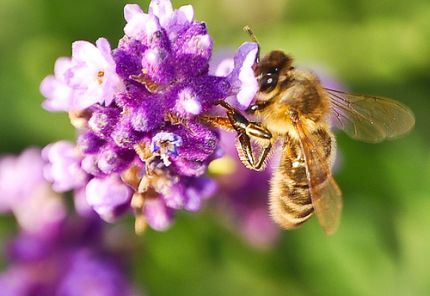
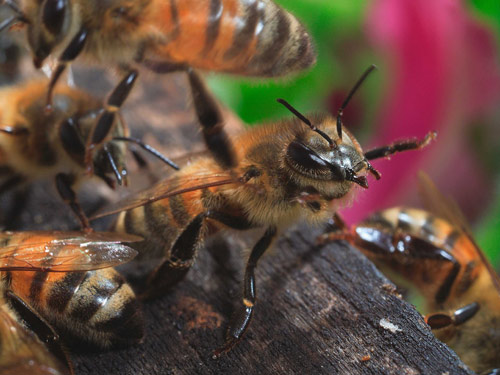
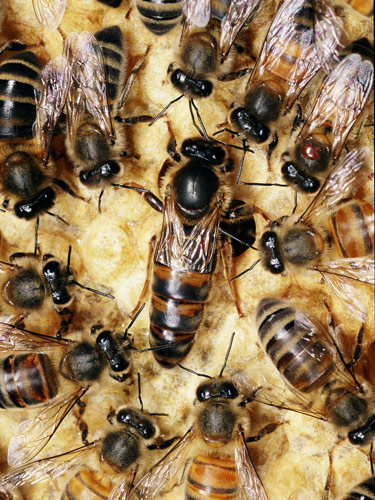
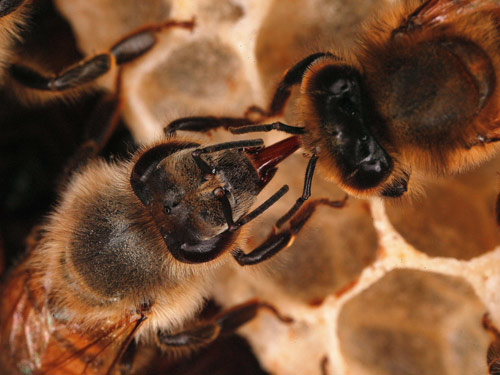
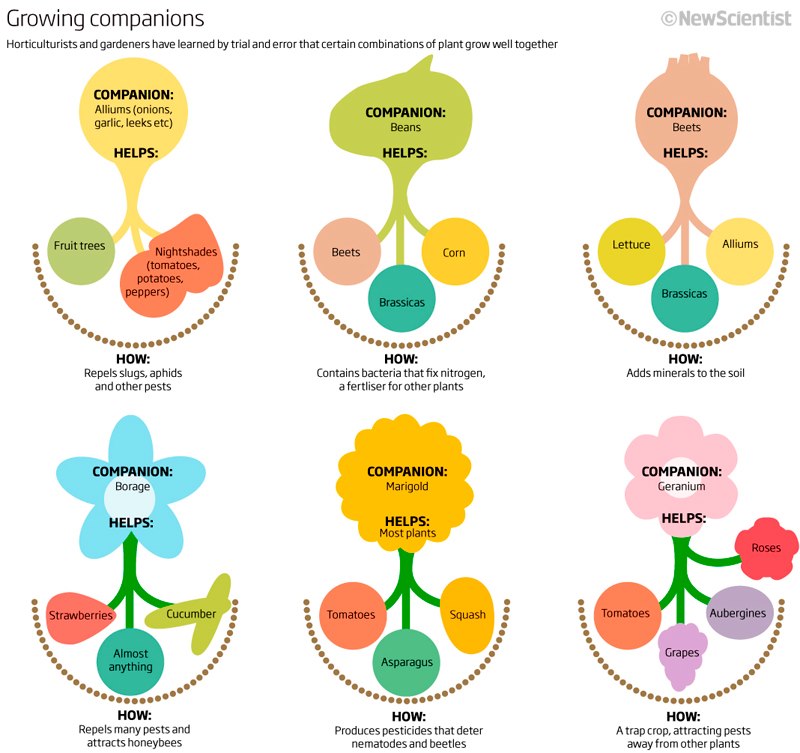

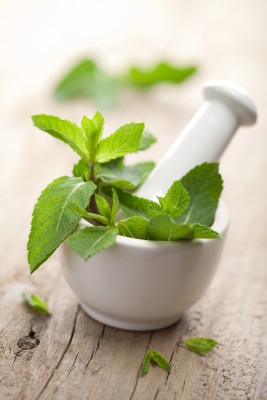
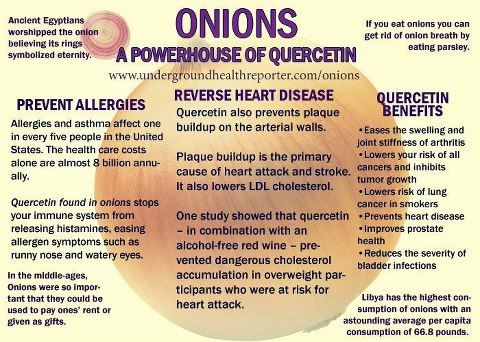


 RSS Feed
RSS Feed